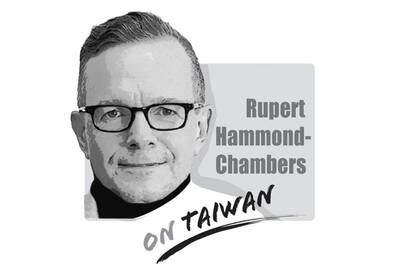Wu Ta-you
Wu's contribution to both sides of the Taiwan Strait was threefold. First of all, he trained Lee Tsung-dao
It is worth pointing out, however, that Wu was only able to realize his full potential because of the relative freedom of Taiwan's society. Had he remained in China it is quite likely that he would not have survived the Cultural Revolution. Wu's death in Taiwan therefore should act as a signal reminder to China of the many problems with its society that drive its brightest and best into exile.
Every October, when winners of the Nobel Prizes are announced, China turns paranoid, criticizing the international community for boycotting Chinese hopefuls. Hopefully Wu's death might help China to concentrate for a moment on why its communist society has failed to produce a great scientist of Wu's ilk.
But on the other hand, Wu's death also gives rise to concern about Taiwan's future in the development of science and technology.
Inevitably Taiwan will, in the future, have to rely on technology for its future development. This is also the reason why some politicians have vowed to turn Taiwan into a "technology island" or "green silicon island." Basic scientific research and the development of applied technologies are the prerequisites of a technologically accomplished Taiwan. These would not be possible without a complementary education system and adequate government budgets.
Today, Taiwan still has not fully realized education reforms to create a healthy, pluralistic environment for students to fully develop their potential. It is also worrying that R&D continues to have such a low priority in Taiwan's government budgets. Admittedly it has risen over the last half of the 1990s -- in 1995, R&D accounted for only 1.81 percent of GNP; last year's figure was at 1.9 percent. But it is still far from the stated goal of 2.5 percent.
Taiwan trails far behind its major competitors, Japan and South Korea, whose R&D investments have long surpassed 2 percent.
Science and technology are an important fountain for a nation's economic development. But for Taiwan, they are much more than that. In fact, they are Taiwan's competitive advantage in the international community. Taiwan's development will be shackled if we cannot raise R&D expenditure significantly. While we remember Wu's contribution to the development of science and technology in Taiwan, we must -- with a pragmatic and proactive attitude -- also face up to the problems still facing Taiwan in these fields and seek solutions. We must strengthen our technological power so as not to not only dishonor the memory of Wu but fulfil our obligation to future generations. Most important of all, development is the key to Taiwan's survival, enabling us to pull ourselves further away from China and avoid the fate of being swallowed.
Having lived through former British prime minister Boris Johnson’s tumultuous and scandal-ridden administration, the last place I had expected to come face-to-face with “Mr Brexit” was in a hotel ballroom in Taipei. Should I have been so surprised? Over the past few years, Taiwan has unfortunately become the destination of choice for washed-up Western politicians to turn up long after their political careers have ended, making grandiose speeches in exchange for extraordinarily large paychecks far exceeding the annual salary of all but the wealthiest of Taiwan’s business tycoons. Taiwan’s pursuit of bygone politicians with little to no influence in their home
In a recent essay, “How Taiwan Lost Trump,” a former adviser to US President Donald Trump, Christian Whiton, accuses Taiwan of diplomatic incompetence — claiming Taipei failed to reach out to Trump, botched trade negotiations and mishandled its defense posture. Whiton’s narrative overlooks a fundamental truth: Taiwan was never in a position to “win” Trump’s favor in the first place. The playing field was asymmetrical from the outset, dominated by a transactional US president on one side and the looming threat of Chinese coercion on the other. From the outset of his second term, which began in January, Trump reaffirmed his
It is difficult not to agree with a few points stated by Christian Whiton in his article, “How Taiwan Lost Trump,” and yet the main idea is flawed. I am a Polish journalist who considers Taiwan her second home. I am conservative, and I might disagree with some social changes being promoted in Taiwan right now, especially the push for progressiveness backed by leftists from the West — we need to clean up our mess before blaming the Taiwanese. However, I would never think that those issues should dominate the West’s judgement of Taiwan’s geopolitical importance. The question is not whether

In 2025, it is easy to believe that Taiwan has always played a central role in various assessments of global national interests. But that is a mistaken belief. Taiwan’s position in the world and the international support it presently enjoys are relatively new and remain highly vulnerable to challenges from China. In the early 2000s, the George W. Bush Administration had plans to elevate bilateral relations and to boost Taiwan’s defense. It designated Taiwan as a non-NATO ally, and in 2001 made available to Taiwan a significant package of arms to enhance the island’s defenses including the submarines it long sought.